Weed Control in Pasture – the importance of controlling weeds early. Planning a weed control programme for new grass will help you grow strong, healthy and persistent pasture. TOP TIPS IMPACT Short term: Seedling weeds vigorously compete for nutrients, moisture, light and most importantly, space. Early removal of these weeds allows for more rapid and even establishment resulting in an increased amount of dry matter for your stock. Long term: Poor establishment of newly sown pasture results in a decrease in pasture productivity and an increase in chemical costs from the extra weed control requirements down the track. PRE GRAZING Ideally, you need a herbicide that will not damage the newly established pasture while providing effective weed control. SPRAY GRAZING Spray grazing is an excellent and […]
Category: Weed & Pest Advice

High risk redlegged earth mite season
Did you know a spring spray is very effective in controlling REDLEGGED EARTH MITES, to prevent damaging populations emerging next autumn? Key points: Spray in spring to control autumn outbreaks Remove females before summer egg laying October 16th ideal spray date for our southern Victorian customers Wet springs, like this season, ideal conditions for populations to flourish In spring RLEM lay diapause eggs which are extremely tough, surviving hot summers, and hatching when cooler, wet conditions arrive in Autumn – often causing significant damage to new pastures. With the help of the Timerite model, a AWI funded CSIRO program, farmers can predict the best date for spring spray, to control redlegged earth mites the following autumn. FOR EXAMPLEPOOWONG: 16th OctoberLatitude:38°20′Longitude:145°44′ […]
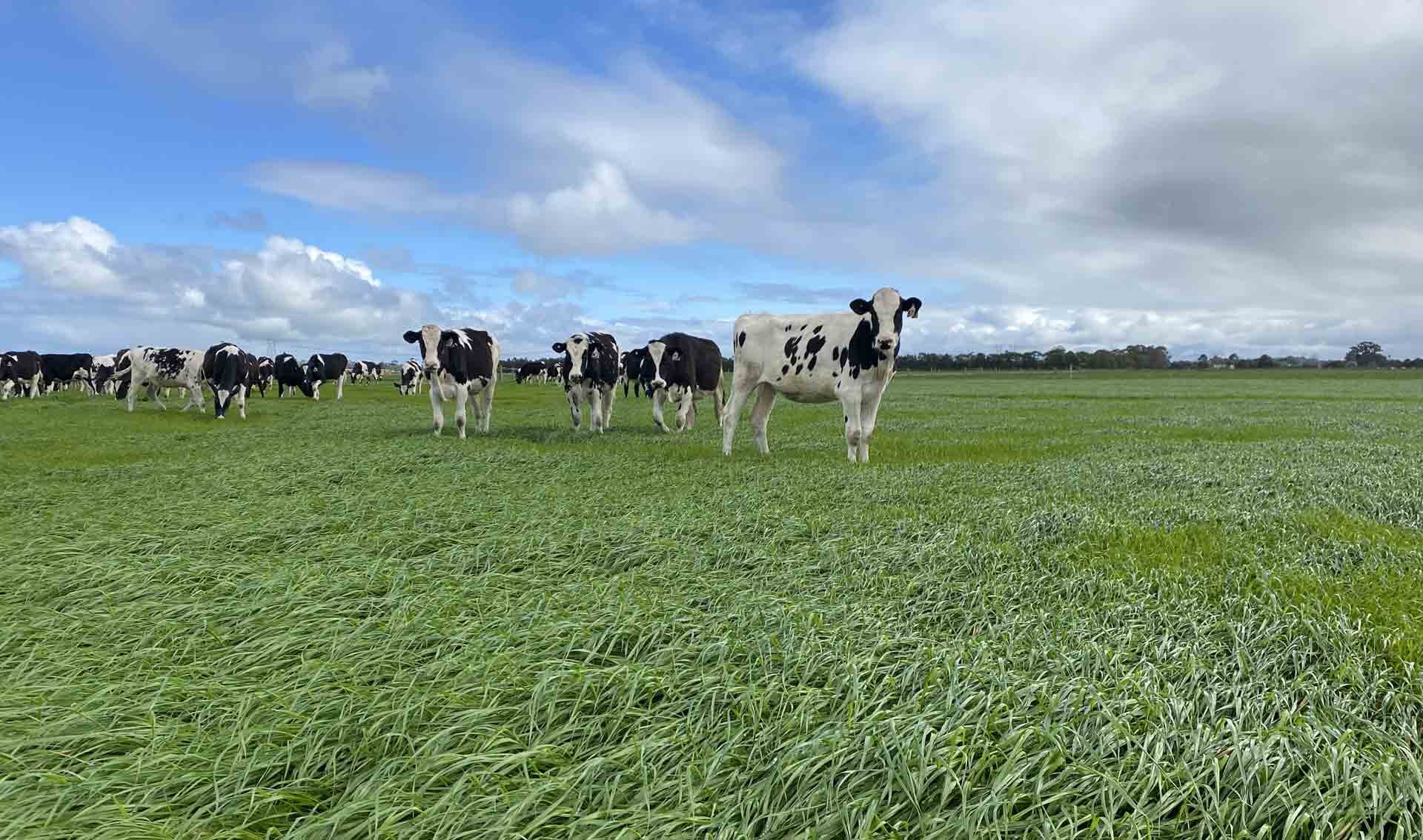
Better results from pasture renewal with a final check
A well-timed final spray-out is essential for effective pasture renovation and cropping success. By targeting weeds and residual plant material, strategic herbicide application helps create a clean seedbed, reducing competition and maximizing the establishment of new pasture or crops. Understanding the best timing, chemical options, and application methods ensures long-term paddock productivity.
Pest protection for emerging seedlings – Insecticide Seed Treatment
Seed treatment is an effective way to protect emerging seedlings against pests, with options available for: Red-legged earth mite Blue oat mites African black beetles Aphids Cutworms Wireworms and Lucerne flea. Why use seed treatment? If you’ve encountered pasture loss in the past due to insect pressure, seed treatment is a worthy consideration. By protecting seedlings against key insects, seed treatment products help maximise plant establishment and early plant development when young seedlings are most vulnerable to pest pressure. Reducing the impact on the soil environment The active ingredient only covers the surface of each seed so that it is always located right where it is needed. The result is a reduction in the amount of chemical needed to protect […]
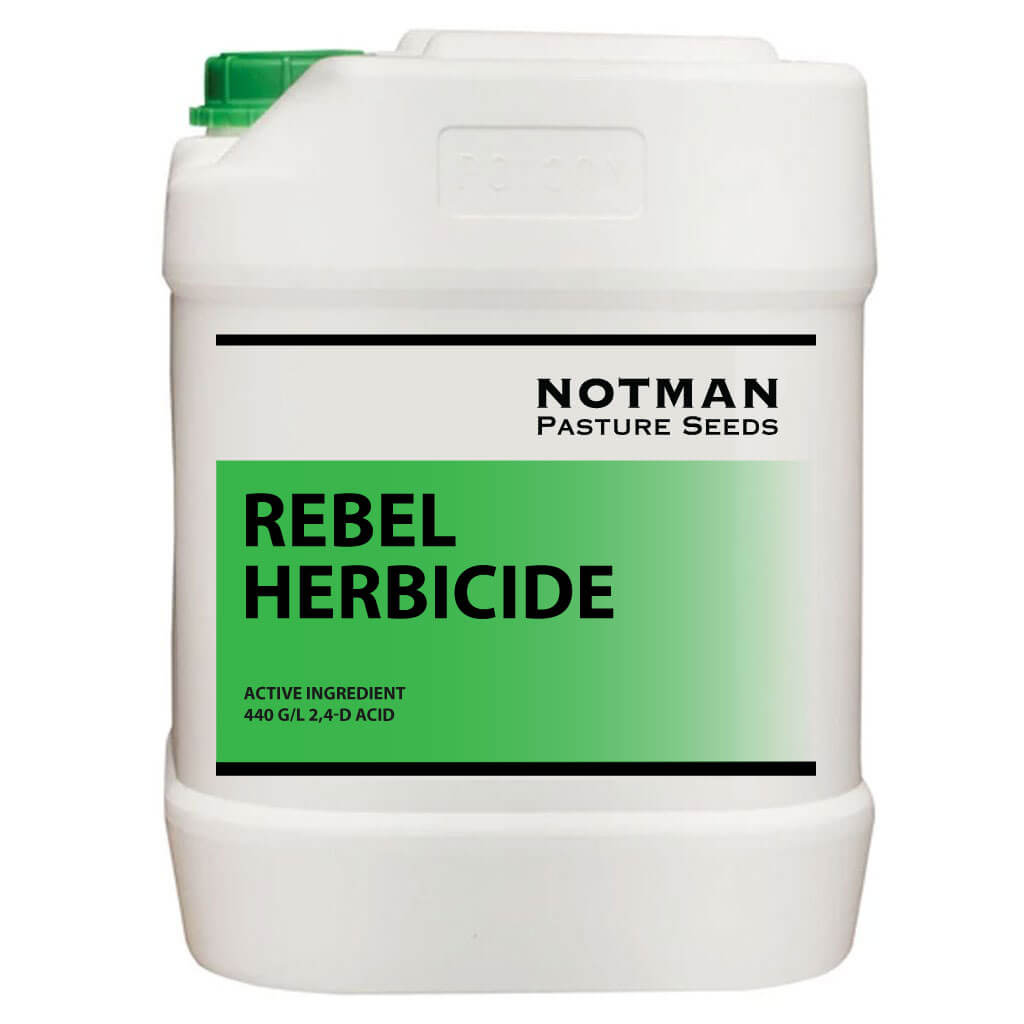
NEW REBEL low odour, non volatile 2,4-D Acid
At Notman Pasture Seeds we are excited to bring our loyal farmers REBEL Herbicide, a NEW novel safer, low odour, non volatile 24D Acid EC that can be used in place of 2,4-D Amine. We think it has it’s place in our chemical portfolio for people who are concerned about volatility, odour and herbicide efficacy – and are prepared to pay a premium for this over your standard 2,4-D. Rebel Herbicide features are: Good on hard to kill weeds Low odour compared to other 24D formulations Superior efficacy compared to Amine formulation No need to carry Ester and Amine in the shed – one drum now that can be used in either situation Compatible with Glyphosate and others Can be […]
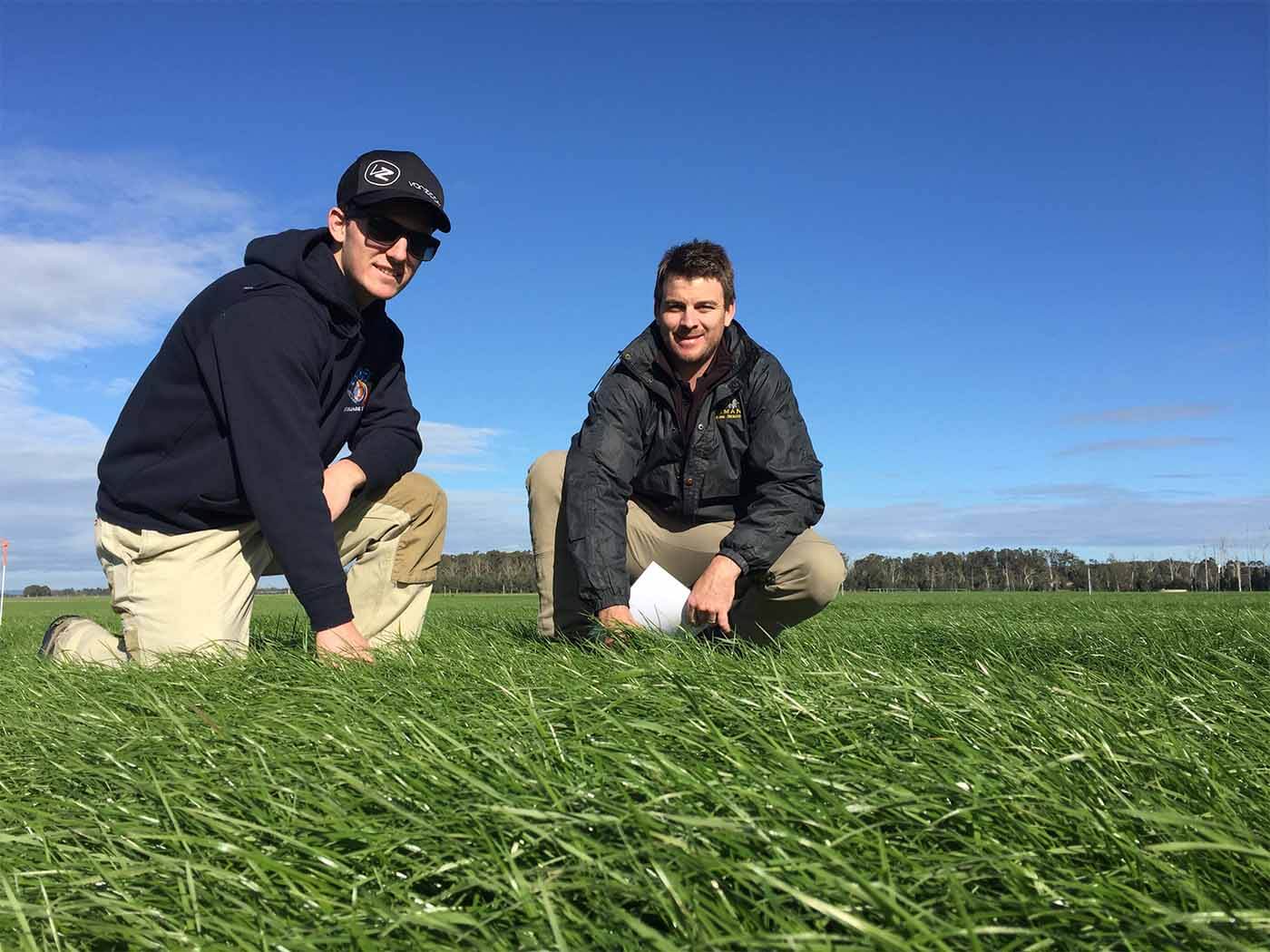
Keys to promoting winter pasture growth
Keys to promoting winter growth Permanent pasture is the mainstay of our pastures in South Gippsland, so maximising the performance of these pastures is of utmost importance. Timing is important in the establishment new pastures as overlooked opportunities & mismanagement can have severe impacts on long term pasture performance heading into late winter and spring with diminished DM/ha returns of quality feed. Walk pastures on a regular basis and assess how far away they are from the necessary grazing, fertiliser and weed/pest control. Common weed infestations include capeweed, chickweed, dock, erodium, flatweed, marshmallow, stinging nettle & thistles. It’s important to ensure herbicide grazing withholds are observed & impact to legumes such as clovers are taken into consideration. New pastures often […]
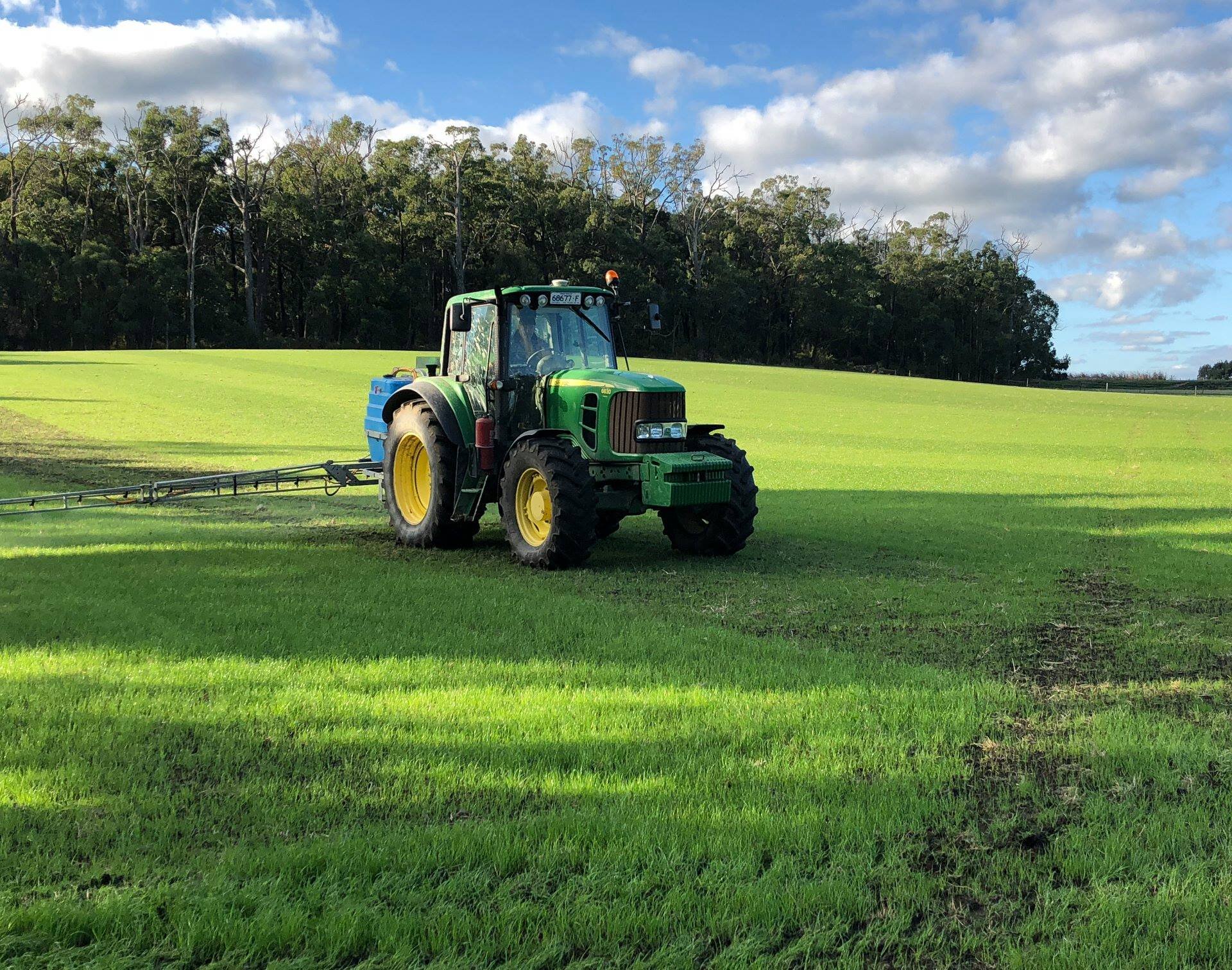
Knocking down pasture broadleaf weeds
Key time for knocking out weeds Maximising the performance of our home grown pastures and doing the small things right canlead to dry matter gains, improved production and better value for every dollar spent, soNotman Pasture Seeds have prepared some simple tips to get the most out of your pastures inlate autumn and early spring. Peter Notman of Notman Pasture Seeds said seedling weeds vigorously compete for nutrients,moisture, light and most importantly, space. “Early removal of these weeds allows for more rapid and even establishment resulting in anincreased amount of dry matter for your stock” Mr Notman said. “Poor establishment of newly sown pasture results in a decrease in pasture productivity and anincrease in chemical costs from the extra weed control […]
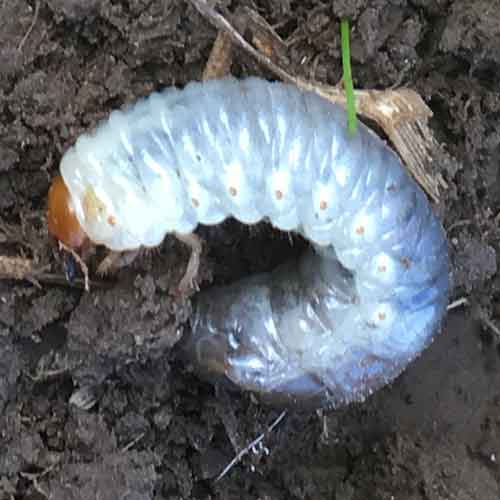
Diagnosis of pasture damage by symptoms
Diagnosis of pasture damage by symptoms, including damage from blackheaded cockchafers, redlegged earthmite, lucerne flea and armyworm
Army worm plaques
Keep an eye out in your crops & pasture for mass plagues of Army-worm throughout Gippsland! They will eat any leaf you have left! Alpha-Cypermethrin 100EC Insecticide will help you combat this plaque, targeting pests like army worm. If you need further information contact our office (03) 5659 2314 or visit our Contact Page.







